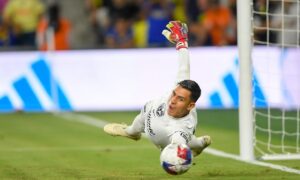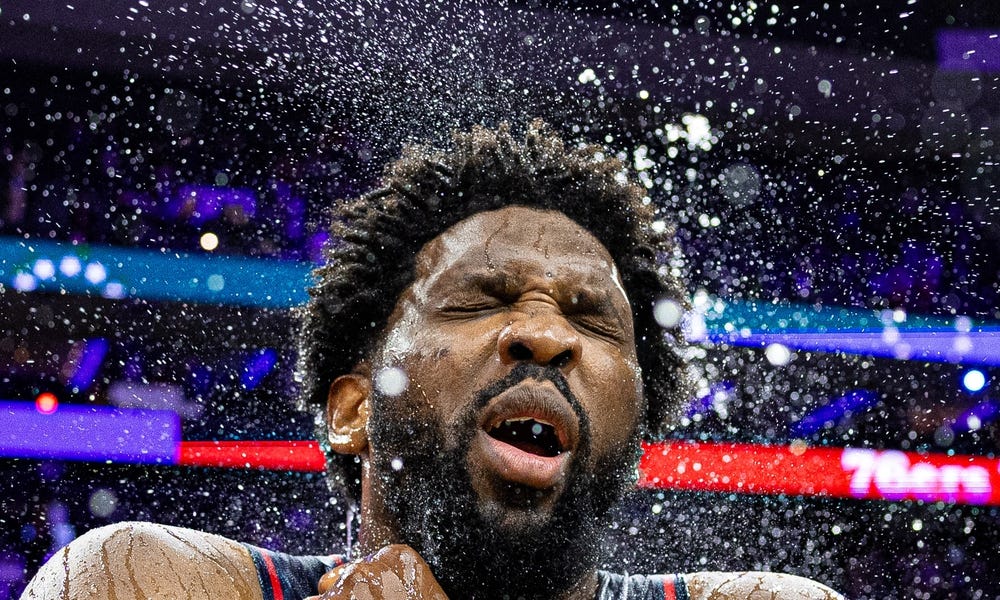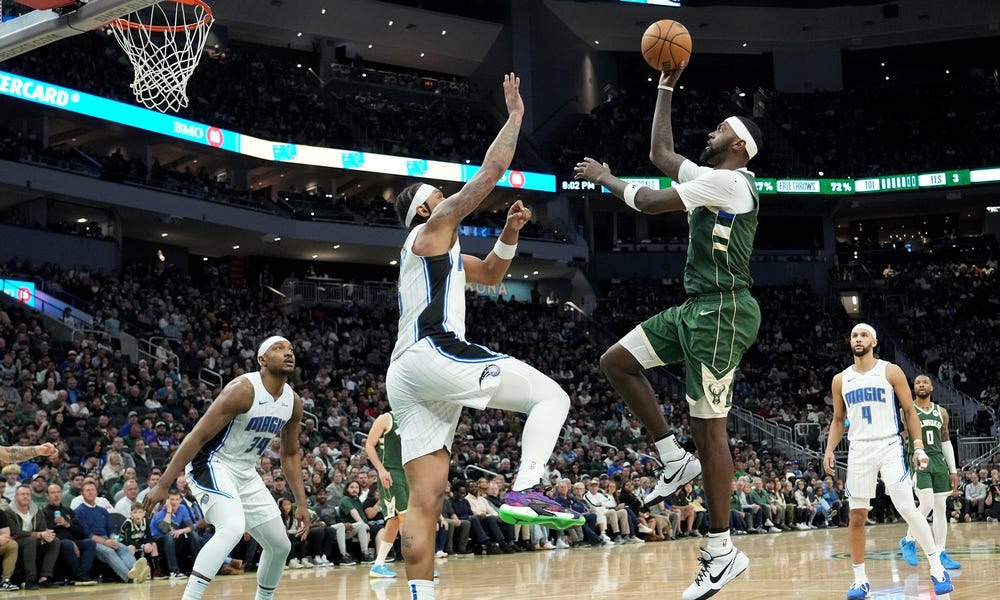Featured Articles
-

 23NHL Game Previews, Picks & Predictions
23NHL Game Previews, Picks & PredictionsPanthers vs Lightning Prediction, Pick, Preview & Betting Odds for 4/25/24
-

 24MLB Game Previews, Picks & Predictions
24MLB Game Previews, Picks & PredictionsPadres vs Rockies Prediction, Pick, Preview & Betting Odds – MLB 4/25/24
-

 31NBA Game Previews, Picks & Predictions
31NBA Game Previews, Picks & PredictionsNuggets vs Lakers Prediction, Pick, Preview & Betting Odds for 4/25/24
What’s Hot
-

 13NHL Game Previews, Picks & Predictions
13NHL Game Previews, Picks & PredictionsHurricanes vs Islanders Prediction, Pick, Preview & Betting Odds for 4/25/24
Keep reading to see our Hurricanes vs Islanders NHL prediction. In this article we...
-

 25MLB Game Previews, Picks & Predictions
25MLB Game Previews, Picks & PredictionsAstros vs Cubs Prediction, Pick, Preview & Betting Odds – MLB 4/25/24
Check out our free Astros vs Cubs pick and preview for this MLB matchup...
-

 102EPL Game Previews, Picks & Predictions
102EPL Game Previews, Picks & PredictionsManchester City vs Brighton & Hove Albion Prediction, Pick, Preview & Betting Odds – Premier League 4/25/24
Check out our free Manchester City vs Brighton & Hove Albion pick and preview...
Latest Knup Sports Show
Latest Posts at KnupSports.com
-

 7Show Notes from Knup Sports Show
7Show Notes from Knup Sports ShowShow #217 – John Latella of On Demand Fantasy Sports
In this episode, we have a special guest, John Latella, who is the mind behind On Demand Fantasy Sports. John's journey is...
-

 13NHL Game Previews, Picks & Predictions
13NHL Game Previews, Picks & PredictionsHurricanes vs Islanders Prediction, Pick, Preview & Betting Odds for 4/25/24
Keep reading to see our Hurricanes vs Islanders NHL prediction. In this article we will outline who will come away with the...
-

 23NHL Game Previews, Picks & Predictions
23NHL Game Previews, Picks & PredictionsPanthers vs Lightning Prediction, Pick, Preview & Betting Odds for 4/25/24
Read our Panthers vs Lightning prediction for this NHL regular season game in Tampa. Check out who we like to win and...
-

 16MLB Game Previews, Picks & Predictions
16MLB Game Previews, Picks & PredictionsAthletics vs Yankees Prediction, Pick, Preview & Betting Odds – MLB 4/25/24
Check out our free Athletics vs Yankees pick and preview for this MLB matchup at Yankee Stadium. See who we like to...
-

 19MLB Game Previews, Picks & Predictions
19MLB Game Previews, Picks & PredictionsDodgers vs Nationals Prediction, Pick, Preview & Betting Odds – MLB 4/25/24
Check out our free Dodgers vs Nationals pick and preview for this MLB matchup at Nationals Park. See who we like to...
-

 24MLB Game Previews, Picks & Predictions
24MLB Game Previews, Picks & PredictionsPadres vs Rockies Prediction, Pick, Preview & Betting Odds – MLB 4/25/24
Check out our free Padres vs Rockies pick and preview for this MLB matchup at Coors Field. See who we like to...
-

 24MLB Game Previews, Picks & Predictions
24MLB Game Previews, Picks & PredictionsMariners vs Rangers Prediction, Pick, Preview & Betting Odds – MLB 4/25/24
Check out our free Mariners vs Rangers pick and preview for this MLB matchup at Globe Life Field. See who we like...
-

 25MLB Game Previews, Picks & Predictions
25MLB Game Previews, Picks & PredictionsAstros vs Cubs Prediction, Pick, Preview & Betting Odds – MLB 4/25/24
Check out our free Astros vs Cubs pick and preview for this MLB matchup at Wrigley Field. See who we like to...
-

 23MLB Game Previews, Picks & Predictions
23MLB Game Previews, Picks & PredictionsBlue Jays vs Royals Prediction, Pick, Preview & Betting Odds – MLB 4/25/24
Check out our free Blue Jays vs Royals pick and preview for this MLB matchup at Kauffman Stadium. See who we like...
-

 23MLB Game Previews, Picks & Predictions
23MLB Game Previews, Picks & PredictionsWhite Sox vs Twins Prediction, Pick, Preview & Betting Odds – MLB 4/25/24
Check out our free White Sox vs Twins pick and preview for this MLB matchup at Target Field. See who we like...
-

 23MLB Game Previews, Picks & Predictions
23MLB Game Previews, Picks & PredictionsRed Sox vs Guardians Prediction, Pick, Preview & Betting Odds – MLB 4/25/24
Check out our free Red Sox vs Guardians pick and preview for this MLB matchup at Progressive Field. See who we like...
-

 23MLB Game Previews, Picks & Predictions
23MLB Game Previews, Picks & PredictionsPhillies vs Reds Prediction, Pick, Preview & Betting Odds – MLB 4/25/24
Check out our free Phillies vs Reds pick and preview for this MLB matchup at Great American Ball Park. See who we...
-

 21MLB Game Previews, Picks & Predictions
21MLB Game Previews, Picks & PredictionsBrewers vs Pirates Prediction, Pick, Preview & Betting Odds – MLB 4/25/24
Check out our free Brewers vs Pirates pick and preview for this MLB matchup at PNC Park. See who we like to...
-

 31NBA Game Previews, Picks & Predictions
31NBA Game Previews, Picks & PredictionsNuggets vs Lakers Prediction, Pick, Preview & Betting Odds for 4/25/24
Check out our Nuggets vs. Lakers prediction to get our insight on to who will win and cover the spread in Los...
-

 29NBA Game Previews, Picks & Predictions
29NBA Game Previews, Picks & PredictionsCavaliers vs Magic Prediction, Pick, Preview & Betting Odds for 4/25/24
Read on to get betting odds and analysis in our Cavaliers vs Magic prediction and preview and see who we think will...
-

 38MLS Game Previews, Picks & Predictions
38MLS Game Previews, Picks & PredictionsPortland Timbers vs Los Angeles Prediction, Pick, Preview & Betting Odds – MLS 4/28/24
Check out our free Portland Timbers vs Los Angeles pick and preview for this MLS match in Los Angeles, CA. See who...
-

 26MLS Game Previews, Picks & Predictions
26MLS Game Previews, Picks & PredictionsSan Jose Earthquakes vs Nashville SC Prediction, Pick, Preview & Betting Odds – MLS 4/28/24
Check out our free San Jose Earthquakes vs Nashville SC pick and preview for this MLS match in Nashville, TN. See who...
-

 21MLS Game Previews, Picks & Predictions
21MLS Game Previews, Picks & PredictionsSporting Kansas City vs Minnesota United Prediction, Pick, Preview & Betting Odds – MLS 4/28/24
Check out our free Sporting Kansas City vs Minnesota United pick and preview for this MLS match in Saint Paul, MN. See...
-

 22MLS Game Previews, Picks & Predictions
22MLS Game Previews, Picks & PredictionsHouston Dynamo vs FC Dallas Prediction, Pick, Preview & Betting Odds – MLS 4/28/24
Check out our free Houston Dynamo vs FC Dallas pick and preview for this MLS match in Frisco, TX. See who we...
-

 18MLS Game Previews, Picks & Predictions
18MLS Game Previews, Picks & PredictionsAtlanta United vs Chicago Fire Prediction, Pick, Preview & Betting Odds – MLS 4/28/24
Check out our free Atlanta United vs Chicago Fire pick and preview for this MLS match in Chicago, IL. See who we...









